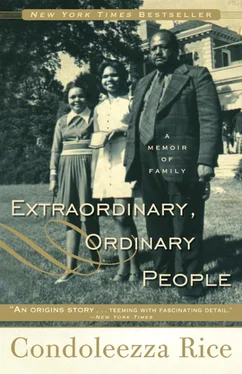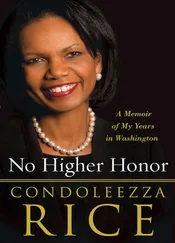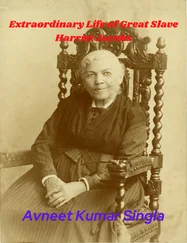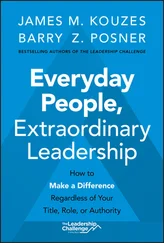Shockley, William (1910–1989):Scientist who shared the 1956 Nobel Prize for Physics for coinventing the transistor. Later in his career, he promoted a number of controversial theories about differences between races; he believed that blacks were genetically inferior to whites.
Shostakovich, Dimitri (1906–1975):Twentieth-century Russian composer.
Shuttlesworth, Fred (1922–):Baptist minister, civil rights activist, and a founder, along with Martin Luther King Jr., of the Southern Christian Leadership Conference.
Smith, Tommie, and Carlos, John:American track stars. At the 1968 Summer Olympics, Tommie Smith won the gold medal in the 200-meter race and John Carlos won the bronze. During the awards ceremony, they raised their arms in a black power salute. An uproar followed, and the International Olympic Committee suspended Smith and Carlos from the U.S. team.
Southern Christian Leadership Conference (SCLC):Formed in 1957 by Fred Shuttlesworth, Ralph Abernathy, and Martin Luther King Jr., among others, with King as its first president. The goal of the organization was to actively pursue racial equality through nonviolent means.
Stanford University:Institution of higher education based in Silicon Valley in Northern California. Founded in 1891 by former California governor and senator Leland Stanford and his wife, Jane Lathrop Stanford, the university counted women, an African American, and future U.S. president Herbert Hoover among the students in its first graduating class.
Student Nonviolent Coordinating Committee (SNCC):Political organization that advocated nonviolent protest against racial injustice through such activities as sit-ins. The SNCC played a major role in organizing the Freedom Riders, interracial activists who took bus trips through the segregated South.
Tet Offensive (1968):On January 31, 1968, in violation of a truce called for the lunar new year, or Tet, North Vietnam launched a major attack on several South Vietnamese cities. Media coverage of the attacks increased U.S. opposition to the Vietnam War.
Union of Soviet Socialist Republics (USSR):Also known as the Soviet Union. At one time the largest country in the world, comprising fifteen political divisions called republics. Until 1991, when the USSR dissolved, the republics had little autonomy. The Communist Party controlled the central government, which was based in Moscow.
United Nations:International organization founded in 1945 to provide a world forum for all nations to promote peace and security, defend human rights, and alleviate disease and poverty.
Verdi, Giuseppe (1813–1901):Italian composer who wrote popular operas such as Aïda and La Traviata . He is well known for his “Triumphal March.”
Vietnam War (1964–1973):Conflict in Southeast Asia during the Cold War in which the United States fought on behalf of the South Vietnamese government against the Northern Viet Cong and its communist allies. As President Lyndon Johnson escalated America’s military involvement in the region, the war became deeply unpopular at home and sparked nationwide protests. President Richard Nixon withdrew all remaining U.S. troops from Vietnam in 1973; the war ended in 1975 after the fall of Saigon, the Vietnamese capital, and the victory of the North Vietnamese communist forces.
Voting Rights Act of 1965:Landmark civil rights legislation that prohibited literacy tests and poll taxes, which had been used in the Jim Crow South to prevent blacks from voting.
Wallace, George (1919–1998):Four-term governor of Alabama, unsuccessful candidate for the U.S. presidency, and outspoken segregationist during the 1950s and 1960s. In the late 1970s, Wallace became religious and changed his views, apologizing to African Americans for his behavior.
Watergate scandal:In the summer of 1972, five men broke into the Democratic National Committee headquarters in the Watergate complex in Washington, D.C. The men were arrested on charges of burglary and were eventually linked to the reelection campaign of President Richard Nixon. The subsequent effort to cover up these events led to the highest levels of the U.S. government. Eventually, President Nixon was implicated in the cover-up and resigned to avoid impeachment.
X, Malcolm (1925–1965):Born Malcolm Little, he educated himself while in prison for robbery, where he changed his last name to X because it was not a “slave name,” a name given to his ancestors by white slaveholders. He became a leader of the Nation of Islam, gaining fame for speeches urging blacks to defend their rights “by any means necessary.” He left the organization after repeated conflicts with its leadership but did not moderate his outspoken views. Malcolm X was assassinated in 1965; three members of the Nation of Islam were convicted of his murder.
READING GROUP GUIDE
for the New York Times bestseller
Extraordinary, Ordinary People
A MEMOIR OF FAMILY
CONDOLEEZZA RICE
INTRODUCTION
BY ANY measure, Condoleezza Rice has built an extraordinary career, becoming the first female National Security Advisor and the first black woman to serve as Secretary of State during a time of seismic shifts on the international landscape. Many public figures have written autobiographies describing hard-won paths to success, but Rice’s journey from the segregated South to the world’s most exalted corridors of power is truly remarkable. Paying homage to her inspiring family, Extraordinary, Ordinary People is a portrait of loving parents who taught their daughter to conquer adversity with determination and education. As we meet her elegant mother and vibrant father, Rice introduces us to her community of middle-class blacks who, in the 1950s, stood poised to topple George Wallace’s call for “segregation now, segregation tomorrow, segregation forever.”
Rice’s family of ministers and teachers had forged success on the outskirts of Birmingham, Alabama. Her parents devoted themselves to Condoleezza, undeterred by the racially motivated violence erupting around them. (Rice knew one of the young girls killed in the Sixteenth Street Baptist Church bombing.) She vividly captures a household where she was encouraged to be “twice as good,” never allowing herself to be cast as a victim to the humiliating circumstances of segregation. Yet it was also a household filled with joy as her mother immersed the family in fine arts and her father coached her on the finer points of football.
In the midst of Birmingham’s struggles, the Rices moved to Colorado, where Rice wandered into a class on international politics at the University of Denver and discovered her passion for foreign affairs. After completing his graduate studies, John transitioned from a life as a Presbyterian minister and became an assistant dean at the University of Denver. Rice describes his unfailing support as she followed in his footsteps into academia, earning a Ph.D., becoming a tenured professor at Stanford, and later serving as the university’s provost. Soon recognized as a leading Cold War scholar, she played a key role in forming U.S. policy as the Soviet Union collapsed, and she went on to become invaluable in both Bush presidencies. Rice recalls each achievement as a tribute to her parents as well.
Brimming with wisdom about families, careers, and history, Extraordinary, Ordinary People is destined to inspire future generations of leaders for years to come. We hope that the following discussion guide will enhance your experience of Condoleezza Rice’s captivating journey.
Читать дальше












